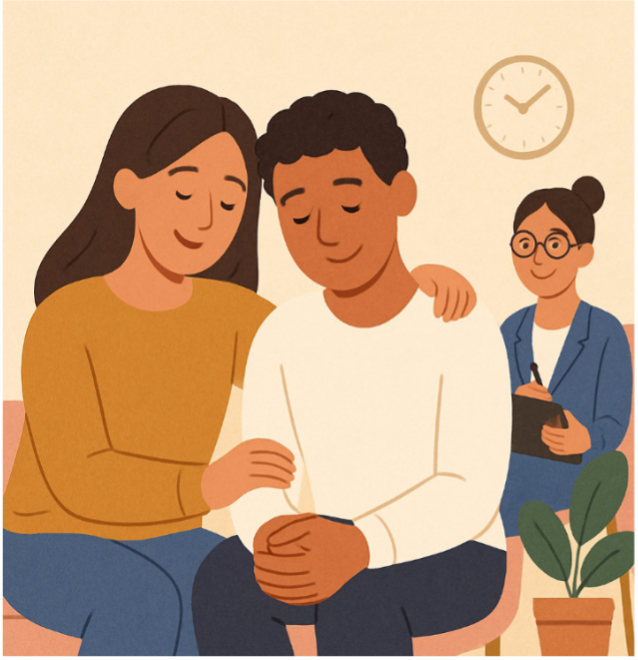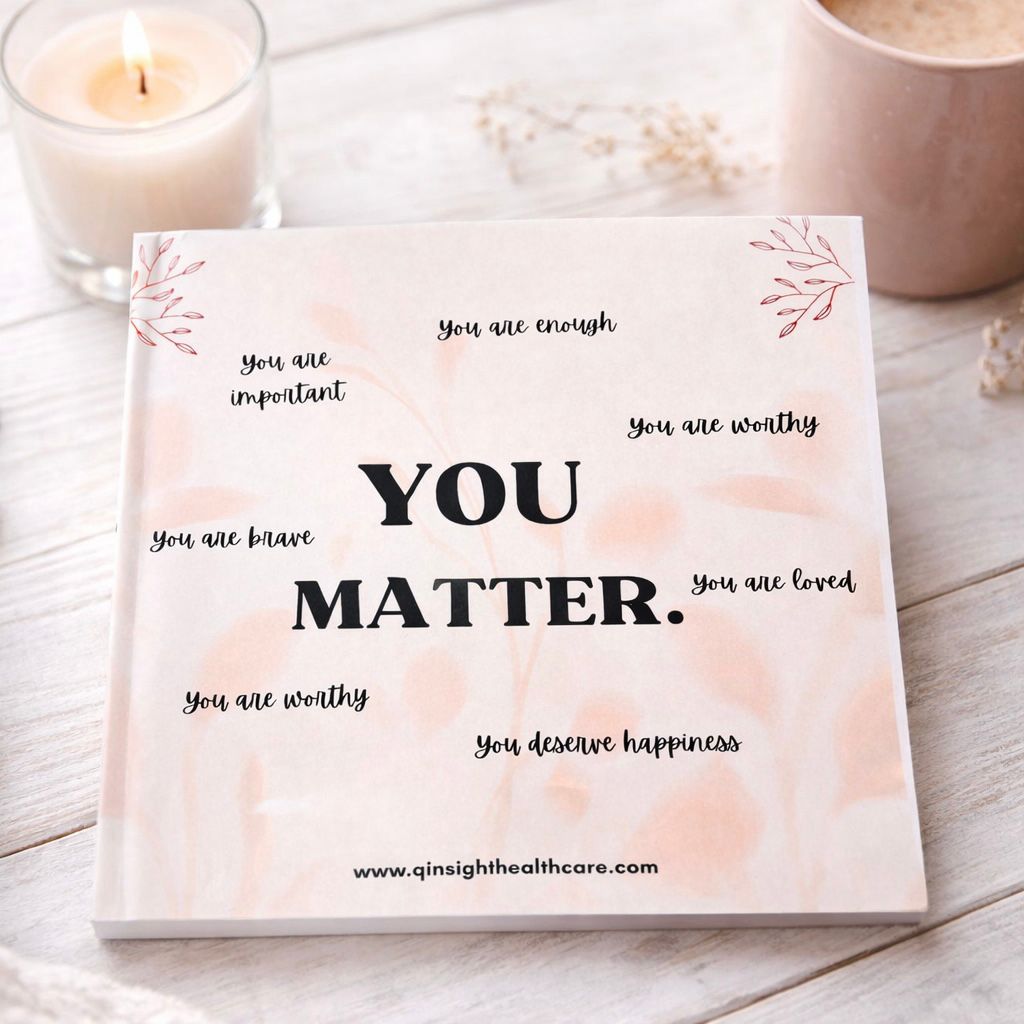Knowing that someone supports you provides a sense of belonging, connection and validation, which are essential for your mental health. Therapy can be a difficult and overwhelming journey and having someone to lean on during this time can make a big difference. It can facilitate their healing and personal growth, and improve their overall well-being.
Why is it important to support your loved one in therapy?
- Reduces stigma: Social stigma for seeking professional help is unpleasant and unfavorable. This discourages people from seeking professional help due to the fear of being judged. Supporting your loved one in therapy helps in normalizing the process and motivates them to continue taking therapy.
- Encourages Consistency: When someone feels helpless and thinks that even therapy won’t work for them, encouraging them can help them initiate or continue their treatment and stay committed to it in the long run
- Reduces the feelings of loneliness: Knowing that someone is there for you and you are not alone in your difficult time helps in reducing the feeling of loneliness that one might experience when he/she is going through emotional ups and downs in their healing journey.
- Increases the effectiveness of the therapeutic treatment: Encouraging and appreciating them for every session they take and every goal they achieve in their therapy increases the effectiveness of therapy. They see how effective therapy is and how it is helping them grow, which enhances their confidence in themselves and the process of therapy. Individuals whose family offers support are more likely to continue therapy and are less likely to drop out of treatment.
- Helps them feel valued: Just being there for your loved one, listening to their concerns and regularly checking on them can remind them that they are valued and cared for.
How to support your loved one in therapy?
Supportive Behaviour:
Showing supportive behaviour can help your loved one taking therapy as it creates an environment where they feel safe and can trust others about their issues. Supportive behaviours can include being non-judgmental about them and having an open mind when listening to them. Showing care and regularly checking up on them can also make them know that they matter.
Effective Communication:
One of the best ways to support someone is by communication. Communicating your thoughts and feelings helps in building trust and can uplift the person going through a hard time. Through communication, one can cheer and encourage their loved one for going to therapy and achieving their goals. You can make sure that your loved one knows that you are there for them and are willing to learn about their concerns, to make them feel heard and less alone in their experience. Positive social communication with family and friends has proven to significantly reduce anxiety and enhance feelings of security.

Active Involvement:
Being actively involved in their healing process makes it easier for them. Every individual’s experience is different so rather than assuming things, you can ask “how can I help you?” This not only shows that you actually care about them, it also sets boundaries where they can let you know the specific ways in which they want you to be involved. A strong social support system improves overall mental health outcomes and the ability to bounce back from stressful situations.
Emotional Validation:
Some days are harder than others, where people may experience very strong emotions. Validating that what they are feeling is acceptable and not wrong can help them in acknowledging and regulating their emotions better. Using statements such as, “I can see how upsetting this is for you,” “Feeling anxious about that is completely valid,” or “It’s okay to feel sad about this” can make your loved one feel heard.
Mental Health Vigilance:
In case of suicidal intentions, you should be in touch with their treatment providers and watch out for any warning signs. Your role is not to fix everything yourself but to ensure they receive the right support at the right time. Being present, patient, and alert can make a life-saving difference. Family members, friends, teachers, co-workers, and others can play an important role in recognizing when someone is at risk or in crisis and then connecting that person with the most appropriate sources of care.
Supporting a loved one in therapy not only helps them feel seen and valued but also plays a vital role in their healing process. By being present, non-judgmental, and actively involved, you contribute to creating a safe and encouraging environment where they can grow emotionally and mentally. Your support can be the strength they need to keep going.
If your family member, loved one, or friend is in need of therapy, feel free to reach out to us.





👍👍👍👍
Great post. I used to be checking continuously this weblog and I am inspired!
Extremely helpful info specially the closing part 🙂 I handle such
info a lot. I was looking for this particular information for a very lengthy time.
Thank you and good luck.